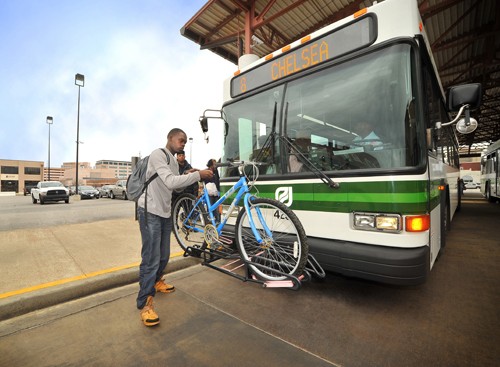The wheels on the bus go round and round, and boy, can they spin at Memphis City Schools (MCS).
MCS’ transportation contract with Laidlaw expired last week, and the board expects to sign a $20 million, one-year extension with the company July 10th. But the one small bump in the road, other than the old contract expiring before the new one was signed, was that the district did not seek
competitive bids from other companies interested in the busing contract.
For the most part, board members are happy with the negotiated contract. Under the new agreement, the school system will have more control over bus routes and stops.
“Most citizens have seen buses that are half-empty,” says board member Deni Hirsh. “As a parent, many years ago, I could call up and say, ‘I don’t like the way this stop is. Can you move it here?’ And it would be done. Now you have to go through a process.”
But the negotiated contract is not a perfect solution.
“I wish we had time to bid this rather than just re-up with Laidlaw,” says Hirsh, “but we don’t. We have a brand-new transportation director. He needs time to evaluate what we’re doing before we put out a request-for-proposals [RFP].”
The previous contract between MCS and Laidlaw was enacted in 2002. But in reality, when it comes to its transportation services, MCS has been operating on autopilot for years. Laidlaw has been MCS’ main transportation company since 1995 when they bought Mayflower Contract Services. And Mayflower’s service with the district goes back even further than that.
Negotiating with virtually one company for 25 years is a dangerous default setting. A study released earlier this year said that the Nashville school system transports more than twice the number of students that MCS does for basically the same amount of money. If there’s a time to see what other companies are offering, it seems like it would be now. Or maybe even a few years ago.
The district has been here before. In spring 2002, with a five-year contract set to expire, board commissioners initially balked at signing a new contract with Laidlaw without bidding it first.
After board member Wanda Halbert pushed for an investigation, then-Superintendent Johnnie Watson said he didn’t feel the previous contract was good for the district. But when asked if the district should take bids for the bus routes, Watson said transportation was considered a professional service and as such, did not have to go through the RFP process. And in that situation, as in this one, there was simply no time to find a new bus company before the district would need transportation.
By fall of that year, however, the district was asking for a refund of almost $1.2 million because of overpayments made under the contract.
And now the district has negotiated with Laidlaw again.
“Laidlaw may be providing the best service that there is,” says board member Martavius Jones. “We just don’t know because we haven’t shopped around. We need to give them a chance to compete with everybody else.”
Without seeing what terms and prices other companies offer, how can the district tell it’s going in the right direction? Twenty million dollars can pay for a lot of teachers’ salaries and new textbooks.
“Hopefully,” says Jones, “during this one-year extension, we’ll prepare the RFP and look at other companies and see what Laidlaw’s competition is and what they’re charging.”
But if that’s going to happen, the district needs to put the pedal to the metal. In a recent Commercial Appeal story, Superintendent Carol Johnson was cited as saying that it would take 18 months to complete the RFP process. Which means that by the time the new contract expires, the school system won’t have a company chosen and could conceivably have to renegotiate with Laidlaw … again. No one from the district administration could be reached for comment or clarification.
The RFP process could result in a brand-new contract with Laidlaw. And that would be fine, if it were the best proposal. But the district needs to be certain — one way or another — that it’s not getting taken for a ride.

